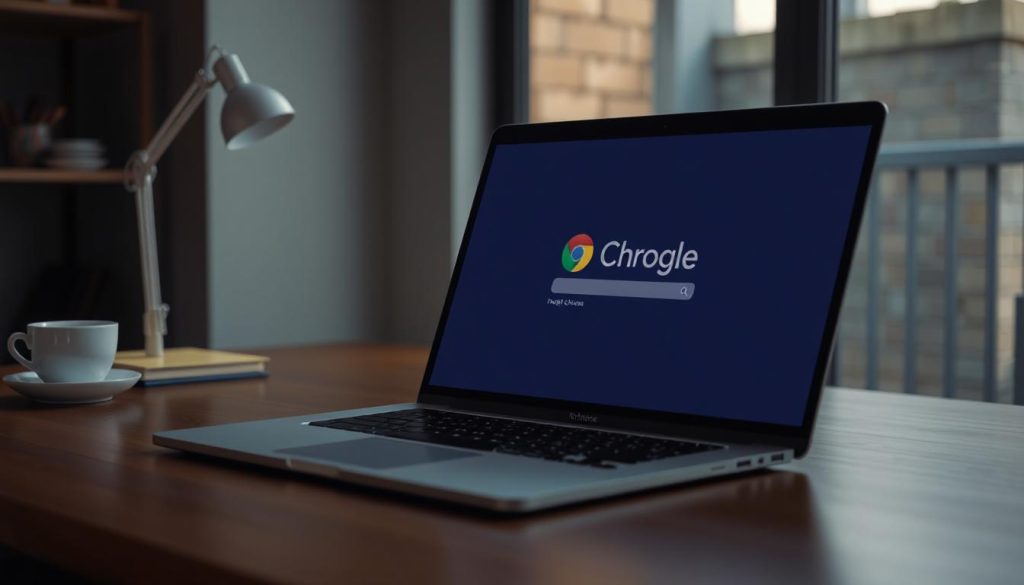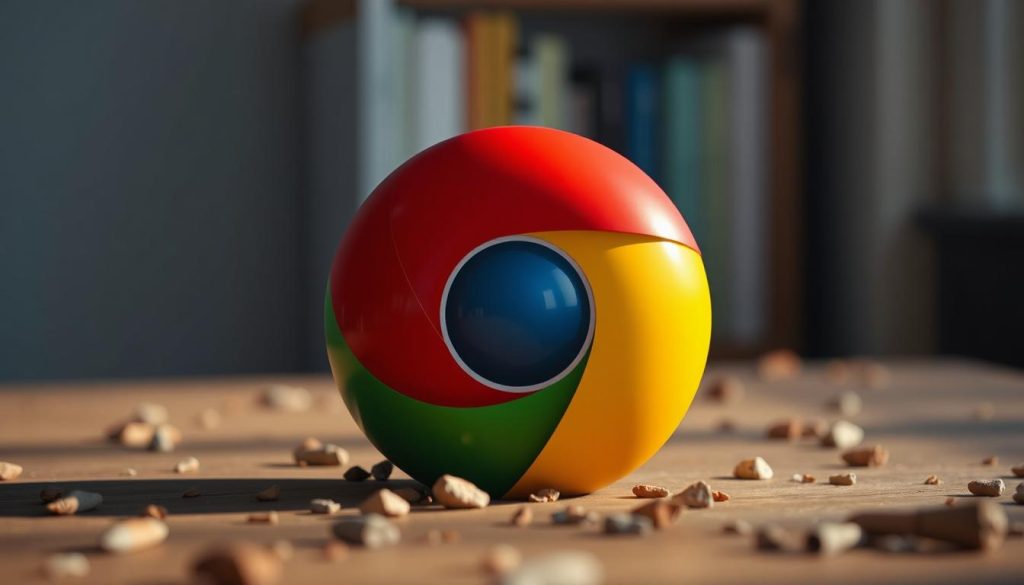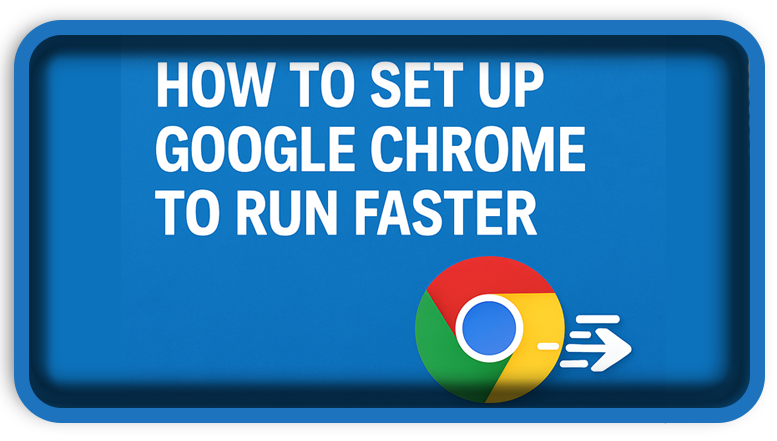⏲️ Estimated reading time: 7 min
How to Set Up Google Chrome to Run Faster: 2025 Speed Optimization Guide. Google Chrome can become slow over time due to unnecessary extensions, overloaded cache, or background processes. Learn how to make Chrome run significantly faster with this easy-to-follow, up-to-date optimization guide for 2025.
Why Chrome Gets Slower Over Time
Google Chrome is one of the most popular web browsers globally, known for its speed, versatility, and seamless integration with the Google ecosystem. However, even the fastest browsers can begin to lag over time. You might notice slower page loads, browser crashes, delayed responses, and increased memory usage. This isn’t always Chrome’s fault it’s usually due to how we use it.
In this article, we’ll walk you through the step-by-step process to make Chrome faster, cleaner, and more efficient than ever before.
1. Keep Google Chrome Updated
An outdated browser can be riddled with bugs and performance issues. Chrome updates often come with security patches, bug fixes, and speed improvements.
How to Update Chrome:
- Click the three-dot menu in the top-right corner.
- Go to Help > About Google Chrome.
- Chrome will check for updates and install them automatically.
- Relaunch the browser to apply the update.
🔄 Tip: Always restart your browser at least once every few days to allow updates to take effect.
2. Disable Unnecessary Extensions
Extensions enhance browser functionality, but having too many can bog down Chrome’s performance.
How to Manage Extensions:
- Type
chrome://extensionsin the address bar. - Disable or remove any extensions you don’t use regularly.
- Look for heavy extensions like ad blockers or productivity tools that may be eating up RAM.
⚠️ Pro Tip: Only keep the essential ones, such as password managers or trusted productivity tools.
3. Clear Cache, Cookies, and Browsing History
Your browser stores a massive amount of temporary files over time. These can clutter memory and cause speed issues.
Steps to Clear Browsing Data:
- Press
Ctrl + Shift + Delete(orCmd + Shift + Deleteon Mac). - Select All time in the time range.
- Check boxes for Cached images and files, Cookies, and Browsing history.
- Click Clear data.
🧹 Doing this monthly can drastically improve loading speed.

4. Enable Hardware Acceleration
Hardware acceleration allows Chrome to use your GPU (Graphics Processing Unit) to speed up rendering of heavy content.
How to Enable:
- Go to
chrome://settings/system - Turn ON the toggle for “Use hardware acceleration when available”.
- Restart Chrome.
💻 Especially useful for video streaming, online gaming, and WebGL content.
5. Preload Pages for Faster Browsing
Chrome has a built-in feature to preload pages you might visit next based on predictions.
Enable Preloading:
- Navigate to
chrome://settings/cookies - Scroll to Page preloading.
- Select Preload pages for faster browsing and searching.
🔍 This improves performance by reducing load times on predicted pages.
6. Close Background Tabs and Apps
Chrome has a feature called “Background apps” that keeps processes running even after you close the browser.
Turn It Off:
- Go to
chrome://settings/system - Disable Continue running background apps when Google Chrome is closed.
⛔ This will free up system memory and reduce CPU load.
Also, make it a habit to close unused tabs. Every tab consumes memory even when inactive.
7. Use Chrome’s Task Manager
Chrome has its own Task Manager, similar to Windows Task Manager. It shows how much memory each tab and extension uses.
Open Chrome Task Manager:
- Click the three-dot menu > More Tools > Task Manager
- End any task consuming a lot of memory that you don’t need.
📊 Helps you identify the biggest performance hogs quickly.
8. Disable Unused Features via Chrome Flags
Hidden in Chrome’s experimental features are flags that can significantly improve speed if used wisely.
Access Flags:
- Type
chrome://flagsinto your address bar. - Search and enable the following:
- Parallel downloading – Speeds up file downloads.
- GPU rasterization – Makes rendering faster.
- Smooth Scrolling – For a more responsive feel.
⚠️ Use with caution. Flags are experimental. Only enable what you understand.
9. Reset Chrome Settings
If Chrome is still running slow despite your efforts, it might be time to reset it.
How to Reset:
- Go to
chrome://settings/reset - Click Restore settings to their original defaults.
- Confirm reset.
🧯 This removes all custom settings but can restore Chrome’s speed dramatically.
10. Try a Clean Chrome Profile
If your user profile is corrupted, Chrome might act sluggish.
Steps:
- Go to your system’s user data folder:
- Windows:
C:\Users\<YourName>\AppData\Local\Google\Chrome\User Data - Mac:
~/Library/Application Support/Google/Chrome/
- Windows:
- Rename the
Defaultfolder toBackup_Default. - Relaunch Chrome – a new profile will be created.
📁 This is like getting a fresh start without uninstalling Chrome.
11. Use a Lightweight Chrome Theme
Heavy themes with animations can slow down Chrome.
Recommendation:
- Stick to the default Light or Dark theme.
- Remove custom themes from
chrome://settings/appearance.
🎨 Simplicity equals speed.
12. Scan for Malware or Browser Hijackers
Some third-party extensions or downloaded apps can insert malicious code that slows down Chrome.
What to Do:
- Use Chrome’s built-in Cleanup Tool:
- Go to
chrome://settings/reset> Clean up computer - Click Find to scan for harmful software
- Go to
Or use tools like:
- Malwarebytes
- AdwCleaner
🛡️ Running regular scans is essential for keeping Chrome running smoothly.
13. Install a Speed-Optimized Chrome Alternative
If you’ve tried everything and Chrome still feels bloated, consider using Chromium-based browsers optimized for speed:
- Brave – Fast, private, with built-in ad blocking.
- Opera GX – Optimized for gaming and multitasking.
- Microsoft Edge – Built on Chromium, but with excellent memory management.
🔧 You’ll still enjoy Chrome features with better speed.
14. Keep Your Operating System and Drivers Updated
An outdated OS or graphics driver can bottleneck Chrome’s performance.
Actions to Take:
- Update your Windows or macOS regularly.
- Install the latest graphics driver from NVIDIA, AMD, or Intel.
- Ensure RAM and CPU usage isn’t maxed out due to background software.
🧠 Chrome can only be as fast as the system it runs on.

🚀 Summary Table: Quick Chrome Optimization Checklist
| Action | Frequency |
|---|---|
| Update Chrome | Weekly |
| Remove Extensions | Monthly |
| Clear Cache | Monthly |
| Enable Hardware Acceleration | Once |
| Use Preloading | Once |
| Turn Off Background Apps | Once |
| Check Task Manager | Weekly |
| Adjust Chrome Flags | Once |
| Reset Chrome (if needed) | Rarely |
| Scan for Malware | Monthly |
🚦New Feature Settings in 2025 You Should Know
In 2025, Chrome introduced several new features worth checking:
- Memory Saver Mode: Automatically frees up memory from inactive tabs.
- Battery Saver: Reduces power usage during browsing.
- Privacy Sandbox Settings: New experimental privacy features now enabled by default.
- Extension Review Tool: Rate and report extensions directly.
Enable or monitor these under chrome://settings/performance.
Final Thoughts
Google Chrome is a powerful tool, but like any software, it needs regular maintenance. Following the steps in this guide ensures your browsing experience remains fast, smooth, and efficient. Whether you’re a casual user or a power browser, taking control of your Chrome setup will pay off in saved time and frustration.
🔔 For more tutorials like this, consider subscribing to our blog.
📩 Do you have questions or suggestions? Leave a comment or contact us!
🏷️ Tags: chrome settings, chrome speed up, browser optimization, chrome extensions, google chrome tips, fast browsing, speed up chrome, cache cleanup, hardware acceleration, chrome performance
📢 Hashtags: #GoogleChrome #ChromeTips #SpeedUpChrome #BrowserOptimization #TechTips #ChromeExtensions #CacheCleanup #ProductivityHacks #HardwareAcceleration #TechGuide
💡Performance Boost Wrap-Up
Mastering Chrome optimization doesn’t require technical expertise just a few smart tweaks. By cleaning up junk files, managing extensions, adjusting internal settings, and keeping everything up to date, you’ll restore Chrome’s speed and keep it lightning-fast in 2025 and beyond.
Only logged-in users can submit reports.
Discover more from HelpZone
Subscribe to get the latest posts sent to your email.

